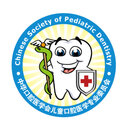Mannose-binding lectin gene polymorphisms are not associated with susceptibility to severe early childhood caries.
Parole chiave
Astratto
Our purpose was to investigate a possible relationship between severe early childhood caries (S-ECC) and polymorphism of the mannose binding lectin gene and investigate the role of allele variant as a possible factor in the susceptibility to S-ECC. Sixty-two Chinese children with S-ECC and 68 caries-free control children were included in this study. Genomic DNA was extracted from buccal epithelial cells of each individual. The identification of MBL B allele was performed by restriction fragment length polymorphism using Ban I restriction enzyme. The frequency of MBL mutant genotype (GGC/GAC and GAC/GAC) was more frequent among children with S-ECC compared with control groups, but did not significantly differ between two groups (x(2) = 2.82, p > 0.05). There was no significant difference in the allele frequency of codon54 wild type (allele A) between two groups (x(2) = 2.76, p > 0.05). The present study did not find evidence of MBL codon54 polymorphisms being associated with S-ECC in the population studied, but a larger sample size is necessary to confirm the present results.



